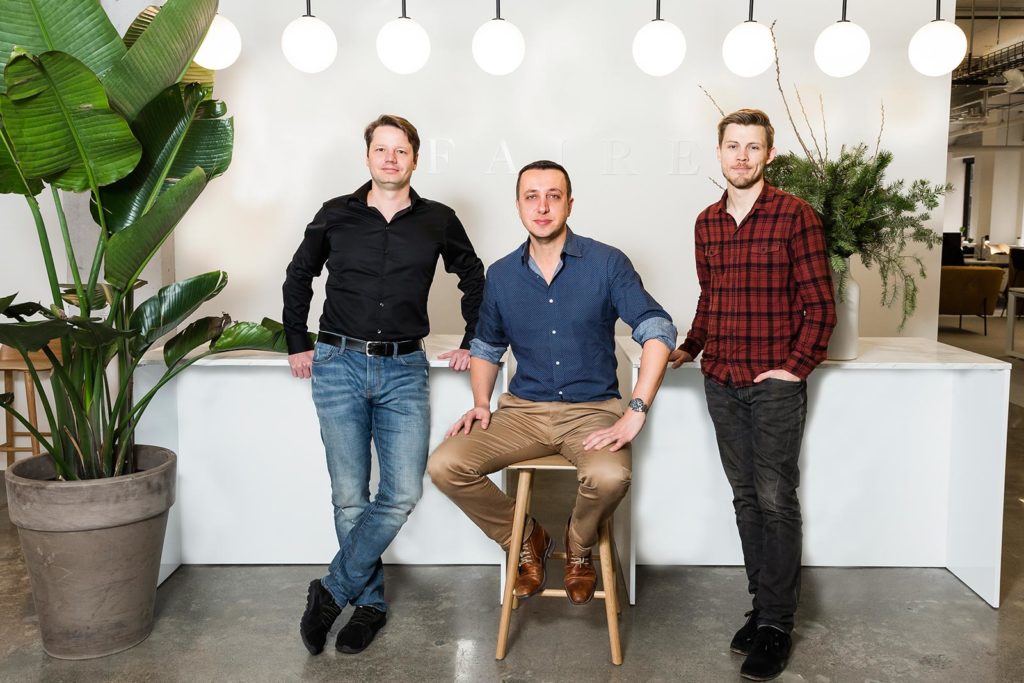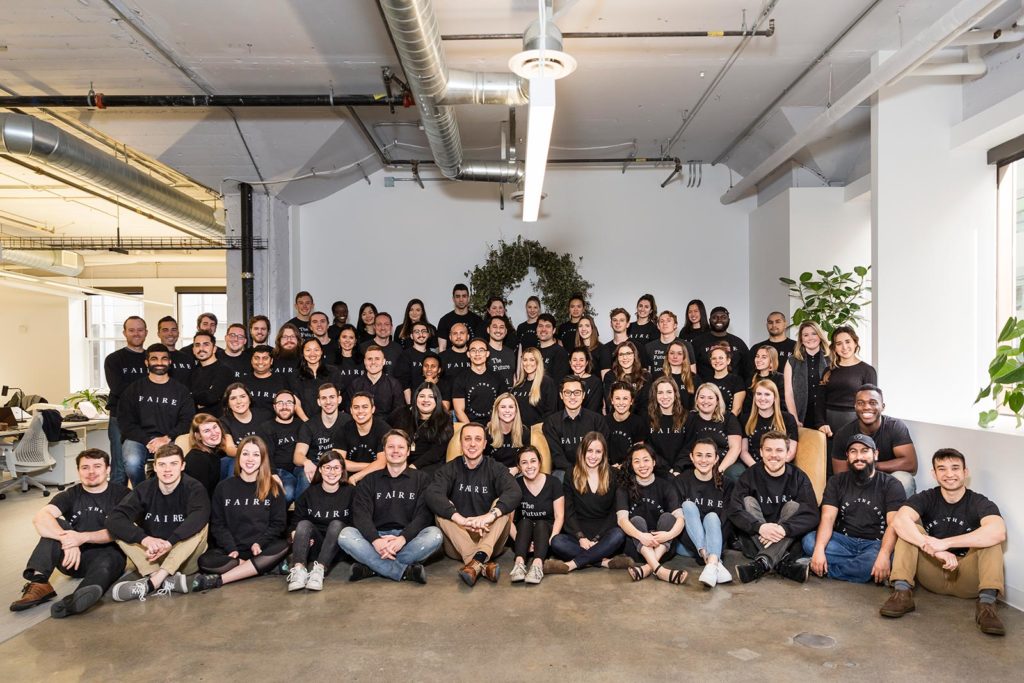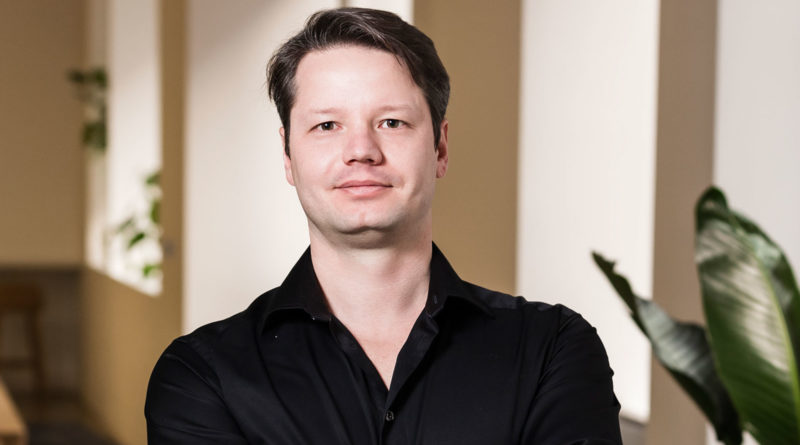Marcelo Cortes – Faire
You’ve just built the perfect umbrella.
It’s fashionable. It’s colourful. It won’t turn inside-out in the wind. It’ll last you a lifetime. It won’t even poke you in the eye.
Selling such a marvel of engineering should be as fool-proof as it is weather-proof, right?
Wrong. No matter how many people love it, it may never land on store shelves, says Marcelo Cortes.
It’s not because stores don’t appreciate good raingear. It’s because most retailers hear about products only via the sales agents who visit them, and the booths they check out at tradeshows.
He knows because that’s what his colleague Max Rhodes did for five years as a North American advisor for the Blunt Umbrella. “Even though he had this very cool product that performed very well, it was very hard to connect with stores and convince them to buy the product,” Marcelo says.
Marcelo and Max, along with Daniele Perito, wanted to know why. They were colleagues at Square, and often bounced ideas off of each other.
With some digging, they realized that makers and manufacturers struggle, but retailers do, too. “Stores need to buy new products because if they don’t, customers stop going there. But it’s not like they have a lot of cash just waiting to find new cool products to buy,” he says.
That’s when the three co-founders of Faire had a crazy idea: leave their jobs and build a brand new marketplace.
“The Amazon of Wholesale”
Faire helps retailers discover top products and makers get their products in front of the right store owners, without all the hassle.
For makers, that means connecting directly to stores that are likely to carry their wares.
As for the stores, Faire gets to know them by gathering data from their websites – stuff like inventory, location, price, and history. Then they deliver a customized list of products that should sell well.
The cherry on top: their try-before-you-buy model, which gives stores 60 days to pay and make returns, no questions asked.
“Basically, we’re building an ecosystem where everybody benefits a lot,” he says. “And we managed to build a business in the middle as well.”

Not Marcelo’s first crazy idea
The first crazy idea was pursuing tech as a career in the first place.
The first computer Marcelo ever used was an Intel 286. It belonged to his family’s video rental store outside of São Paulo, Brazil. All the commands were in English.
Although the 11-year-old didn’t speak much of the language, he was able to figure things out. “I learned the basics of listing all the things on the computer,” he says, and soon was running every available command, just to see what they did.
“How do I go from where I am to Microsoft?”
Marcelo, eager to learn even more, knew his high school offered a program in information technology. He wanted in; his parents weren’t so sure about it.
“My dad, and the family, has always been very close to mechanical engineering,” he says. “The day of making the decision, my dad’s like, ‘you’re going to the mechanical engineering program.’”
Marcelo had other plans, though. “I signed up for information technology. That’s what I like to do, I’m doing it.”
His second crazy idea: to come to Canada (and stay here).
Now a graduate with some work experience under his belt, Marcelo tore through the ranks in São Paulo. He knew he had to move abroad if he was going to move forward.
“We heard great things about Toronto and we were curious about the cold weather as well.”
“I was thinking, how do I go from where I am to Microsoft?” he says.
The biggest barrier was language. While he spoke some English, he wasn’t fluent enough to work for an all-English company. So he decided to learn through immersion, in Canada.
“Coming to Canada to learn English was much cheaper than in the US,” he says. Plus, “we heard great things about Toronto and we were curious about the cold weather as well.”
Within the first month, Marcelo met his future wife and a few other Brazilians who worked in tech. Not wanting to leave that behind, he swapped his tourist visa for a student visa and enrolled in college.
Even with a diploma in hand, there were no jobs when he graduated – not a great situation for someone whose visa was about to expire. His parents urged him to move back to Brazil to find work.
Marcelo, again, had other plans. “I was like, ‘No, I like it here, I’m staying here!’”
That third crazy idea? Leaving a dream job to build his own company.
Marcelo landed a job in Canada after all. He went back to school, this time at the University of Waterloo, and worked some contract gigs as well.
Then, Google called. They wanted to explore job opportunities.
“I saw that it’s possible to build a company where the average person is passionate about what they’re doing.”
At first, he wasn’t sure. Marcelo had a few big companies under his belt, and he noticed a trend he didn’t like. “There will be a small percentage of people that are really passionate, but then there is a lot of people who hate the job. They do it because they make money,” he says.
“It’s very demotivating to be in an environment like that.”
Google was different, though. “I saw that it’s possible to build a company where the average person is passionate about what they’re doing,” he says. He agreed to join the ranks as a senior software engineer.
As much as he loved the job, it wasn’t long before he felt that itch again. He could do more.
Together with a Google colleague, he started building Pictoreo. Imagine Instagram with subtle animations, like a waterfall flowing in the background. “We made it very easy for people to build those types of images, animate them, and share them,” he says.
The idea was so promising that both decided to leave Google to build it.
It takes more than a crazy idea to make a business
While Pictoreo found some traction, Marcelo and his co-founder parted ways. “There was a disconnect between thinking in terms of how do you build a business vs. how do you just build an app that people are going to use,” he says. “We did things in the wrong order.”
Marcelo wanted to learn how to do things right, so he took a job at a startup that was already on a rocket-ship trajectory: Square.
“The reality is, you have to build something that adds value to people… You
need a team that can execute to make it successful.”
On the Square Cash team, he got the education he was looking for. “We struggled a lot. We changed things a lot. We added new features. Some things would work, some wouldn’t,” he says. “There was a lot of iteration and rethinking and redoing the same thing again, and moving very fast.”
And he’s learned a thing or two about crazy ideas, whether it’s an umbrella, a school program, a move, a job change, or an entire marketplace.
“The reality is, you have to build something that adds value to people,” he says. “You need a team that can execute to make it successful.”
Those are crazy ideas he can get behind – and found at Faire.

Learn more at:
www.faire.com

